As spring approaches, the weather is changeable, and many people will suffer from colds, fever, physical discomfort, and virus invasion. We can resist the invasion of viruses by washing our hands frequently and exercising more, ensuring adequate sleep and regular work and rest. You can also improve your body's immunity by "eating". A balanced diet and comprehensive nutrition will make our body stronger. NMN's good partner-PQQ can also help us improve our immunity

1.PQQ inhibits lipopolysaccharide-induced inflammation
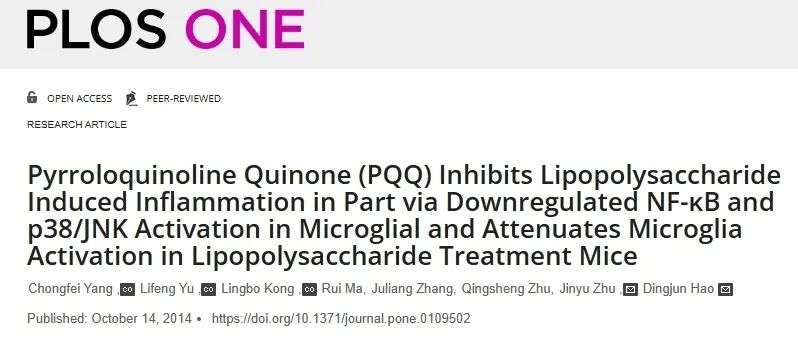
In 2014, a foreign research team published an article in "Public Library of Science" to study the powerful immunosuppressive effect of PQQ.
The experimenters studied the anti-inflammatory effect of PQQ in LPS-treated primary microglia and the inhibitory effect of PQQ on neuroinflammation in vivo using systemic LPS to treat acute inflammation in a mouse brain model. The results showed that PQQ pretreatment significantly inhibited the production of NO and PGE2, and suppressed the expression of pro-inflammatory mediators (such as iNOS, COX-2, TNF-a, IL-1b, in LPS-treated primary microglia, IL-6, MCP-1 and MIP-1a).
In LPS-stimulated primary microglia, the nuclear translocation of NF-κB and the phosphorylation levels of p65, p38 and JNK MAP kinase pathways were also inhibited by PQQ. Mice treated with PQQ showed a significant attenuation of neuroinflammation, according to Western blot and immunohistochemical analysis of Iba1 anti-antibodies in brain tissue. Show that PQQ protects primary cortical neurons from microglia-mediated neurotoxicity.
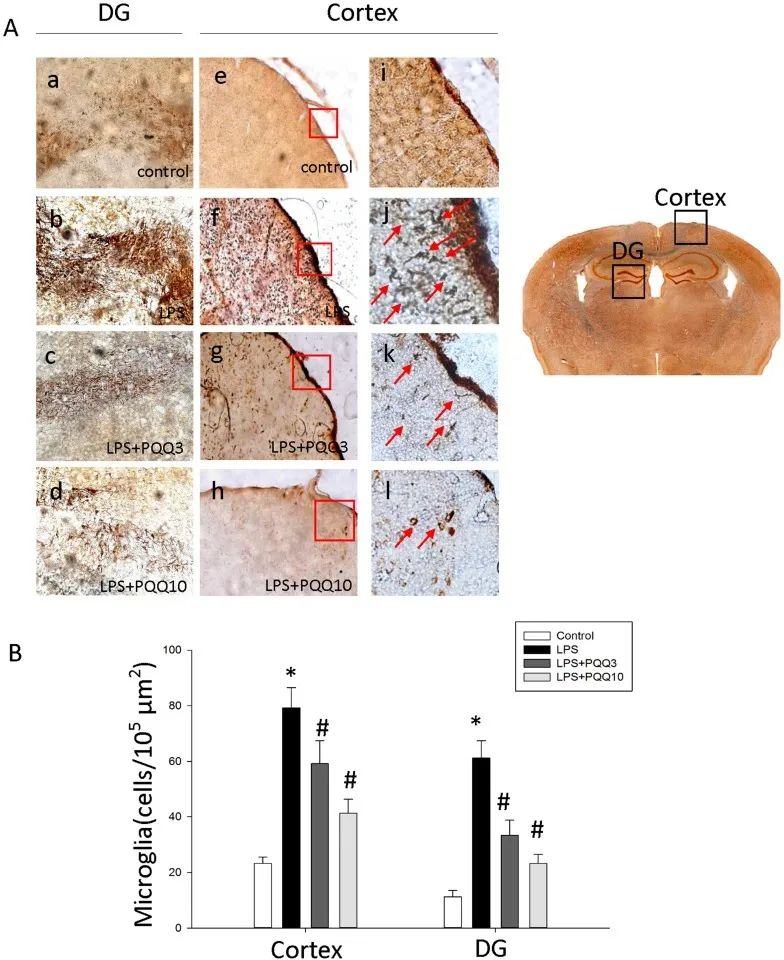
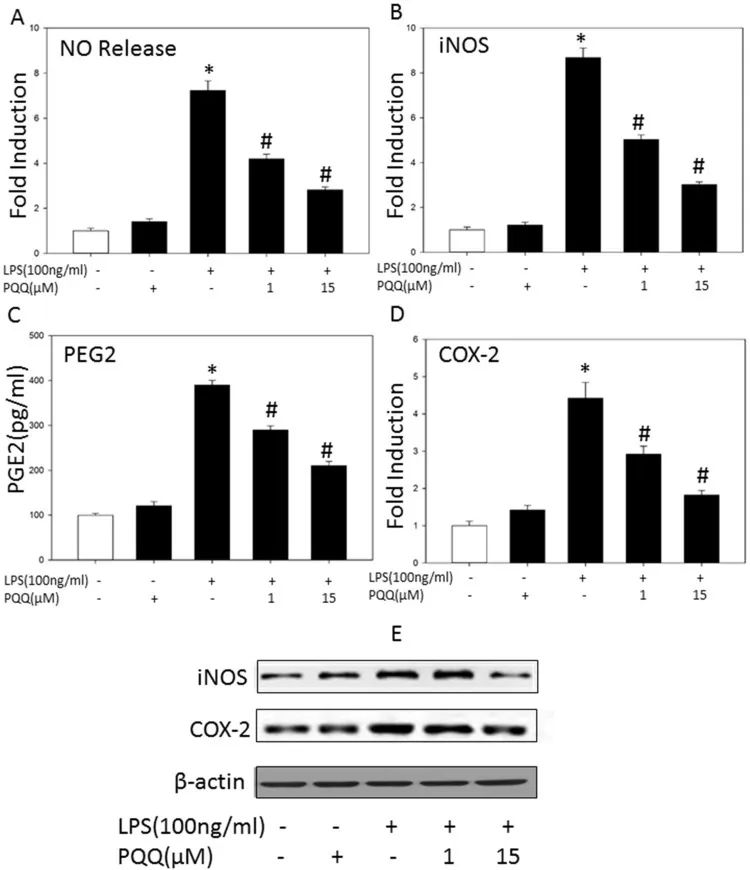
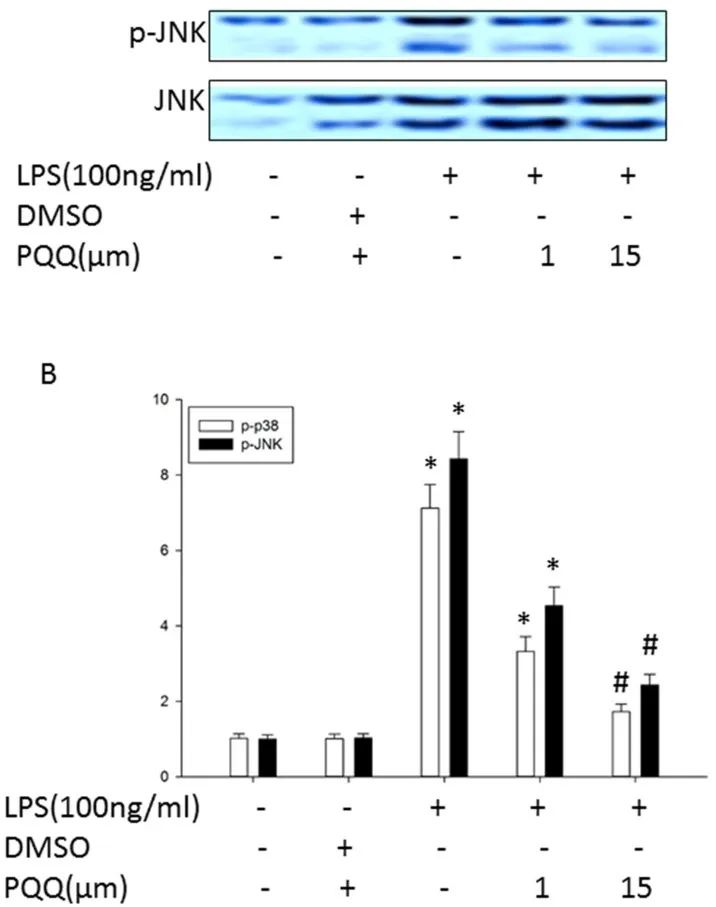
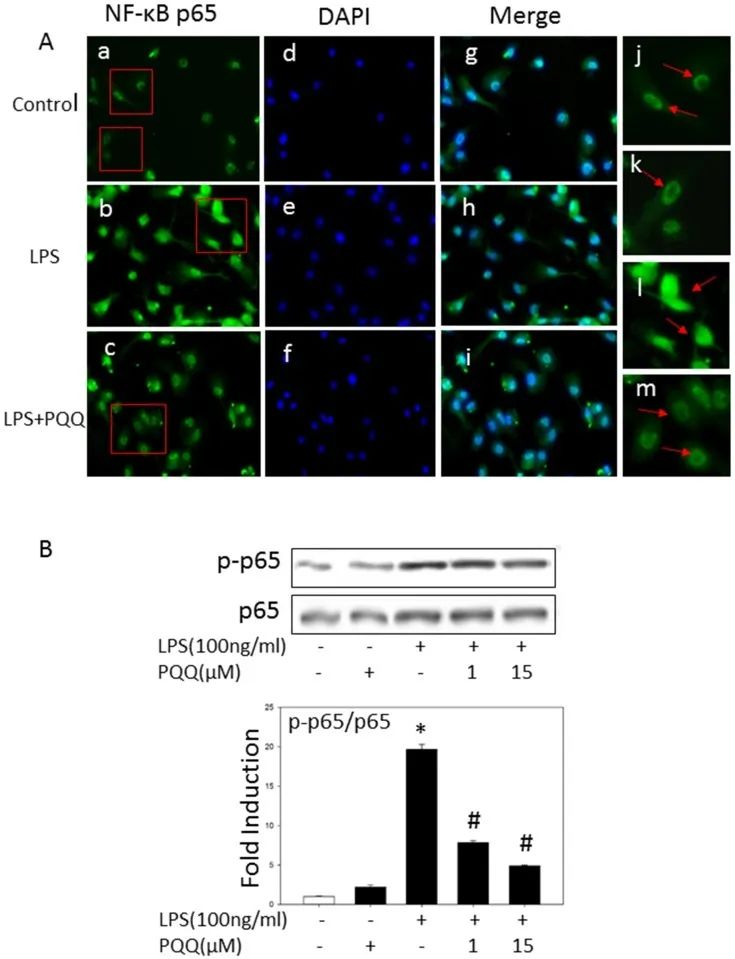
Results indicate that pyrroloquinoline quinone (PQQ) suppresses lipopolysaccharide-induced inflammation by downregulating NF-κB and p38/JNK activation in microglia and attenuates microglial activation in lipopolysaccharide-treated mice.
2.PQQ improves inflammation-related metabolic indicators in the human body
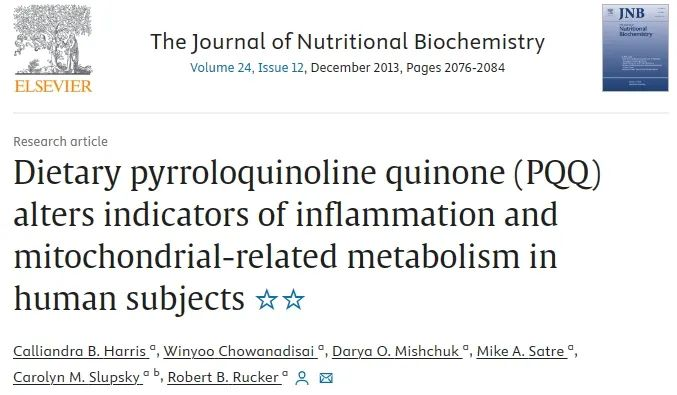
In 2013, a foreign research team published an article in the Journal of Nutritional Biochemistry to study the reaction of PQQ in the human body.
Using a crossover study design, the researchers gave 10 subjects (5 women, 5 men) a fruit-flavored drink spiked with PQQ. In study 1, PQQ was administered as a single dose (0.2 mg/kg). Plasma and urinary PQQ levels and changes in antioxidant potential [based on total peroxyl radical trapping potential and thiobarbituric acid reaction products (TBAR) assays] were measured multiple times throughout 48 hours. In study 2, PQQ was administered at a daily dose (0.3 mg/kg). After 76 hours, measurements included inflammatory markers [plasma C-reactive protein, interleukin (IL)-6 levels], standard clinical markers (eg, cholesterol, glucose, HDL, LDL, triglycerides, etc.) and (1) H NMR estimates of some urinary metabolites related to oxidative metabolism.
Dietary PQQ (Study 1) resulted in significant changes in antioxidant potential as assessed by TBAR relative to malondialdehyde. In Study 2, PQQ supplementation resulted in significant reductions in plasma C-reactive protein, IL-6, and urinary methylated amine (e.g., trimethylamine N-oxide) levels, with changes in urinary metabolites consistent with enhanced mitochondrial-related function.
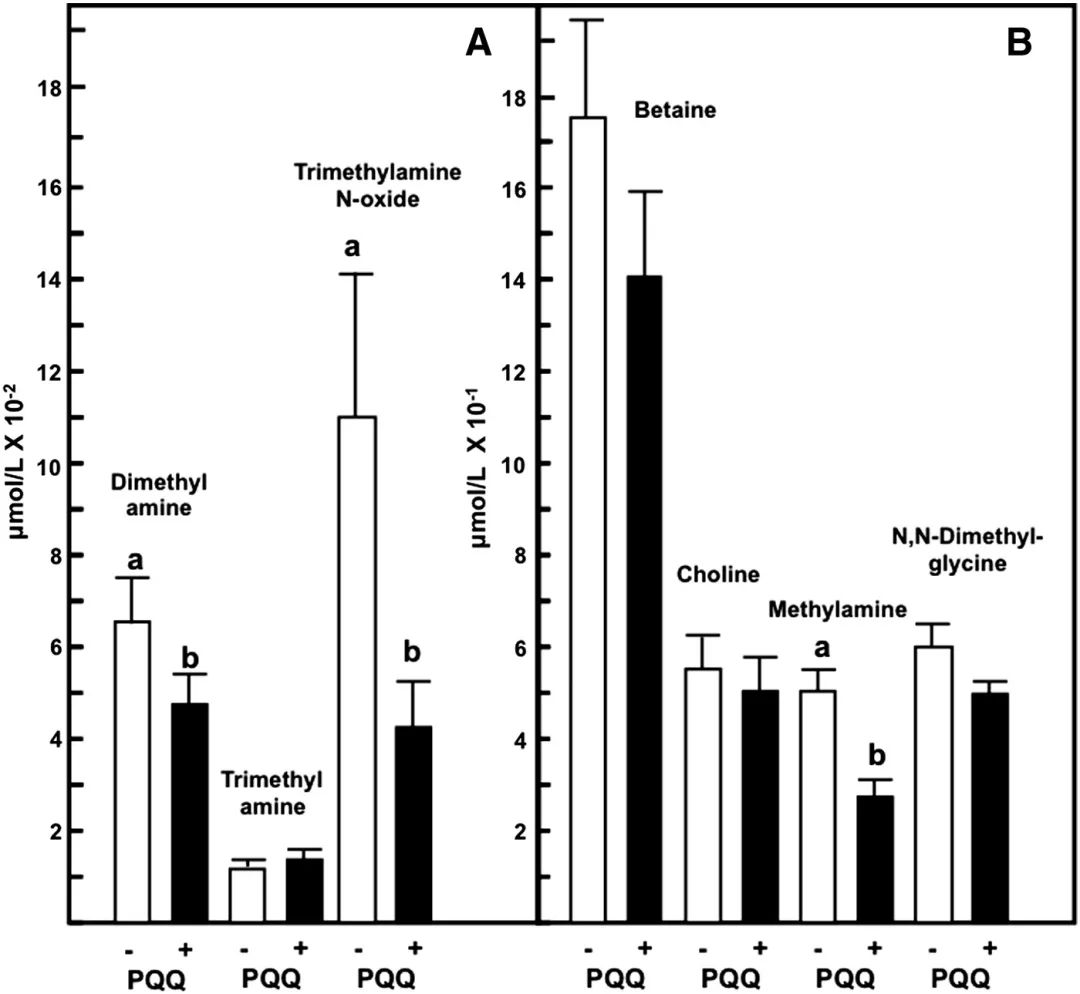
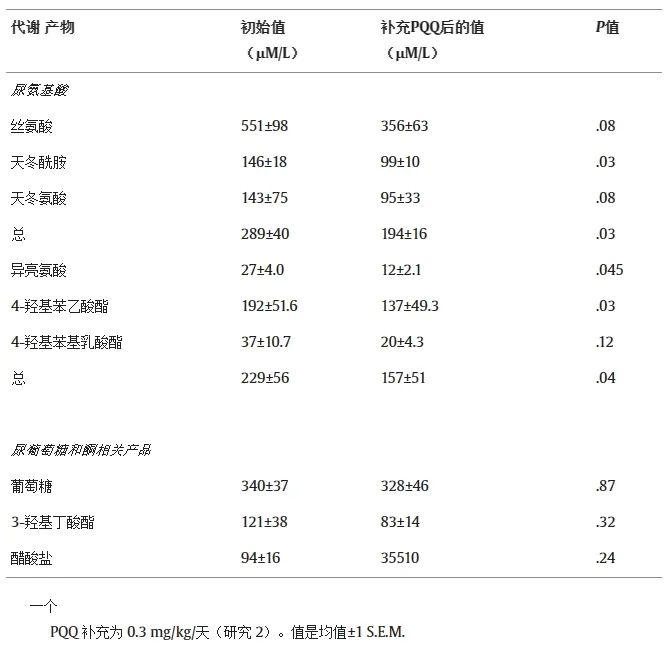
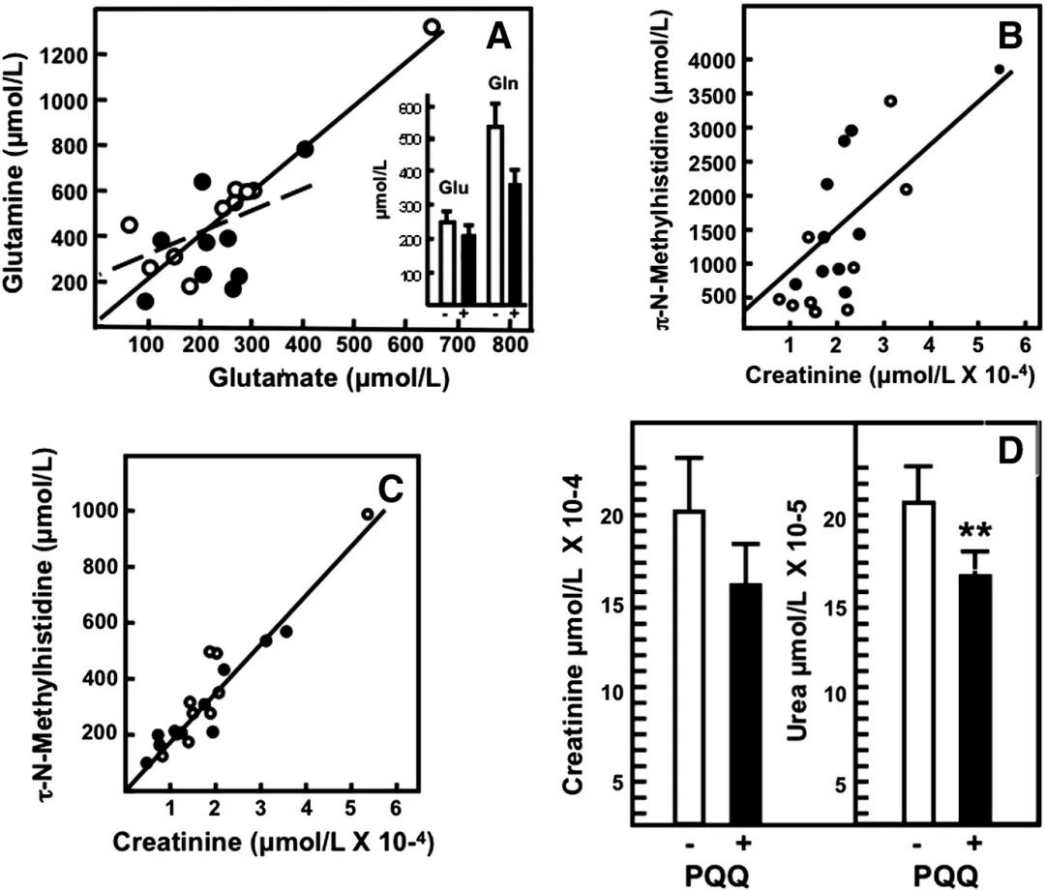
Results showed that human subjects responded rapidly to PQQ supplementation, with changes in urinary metabolites consistent with enhanced mitochondrial-related functions. PQQ promotes the body's anti-inflammatory potential by involving changes in interleukin levels.
Post time: Feb-01-2024


